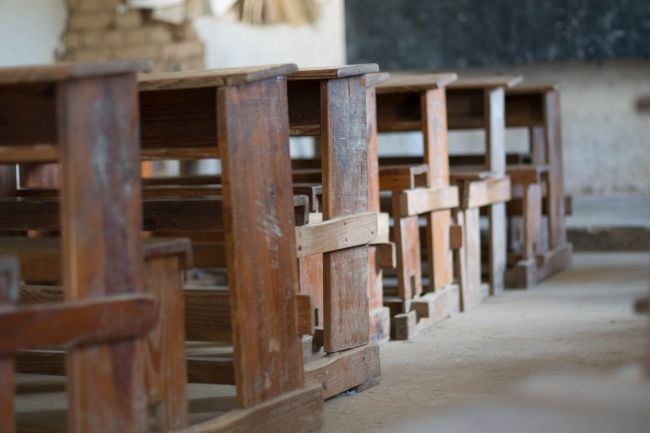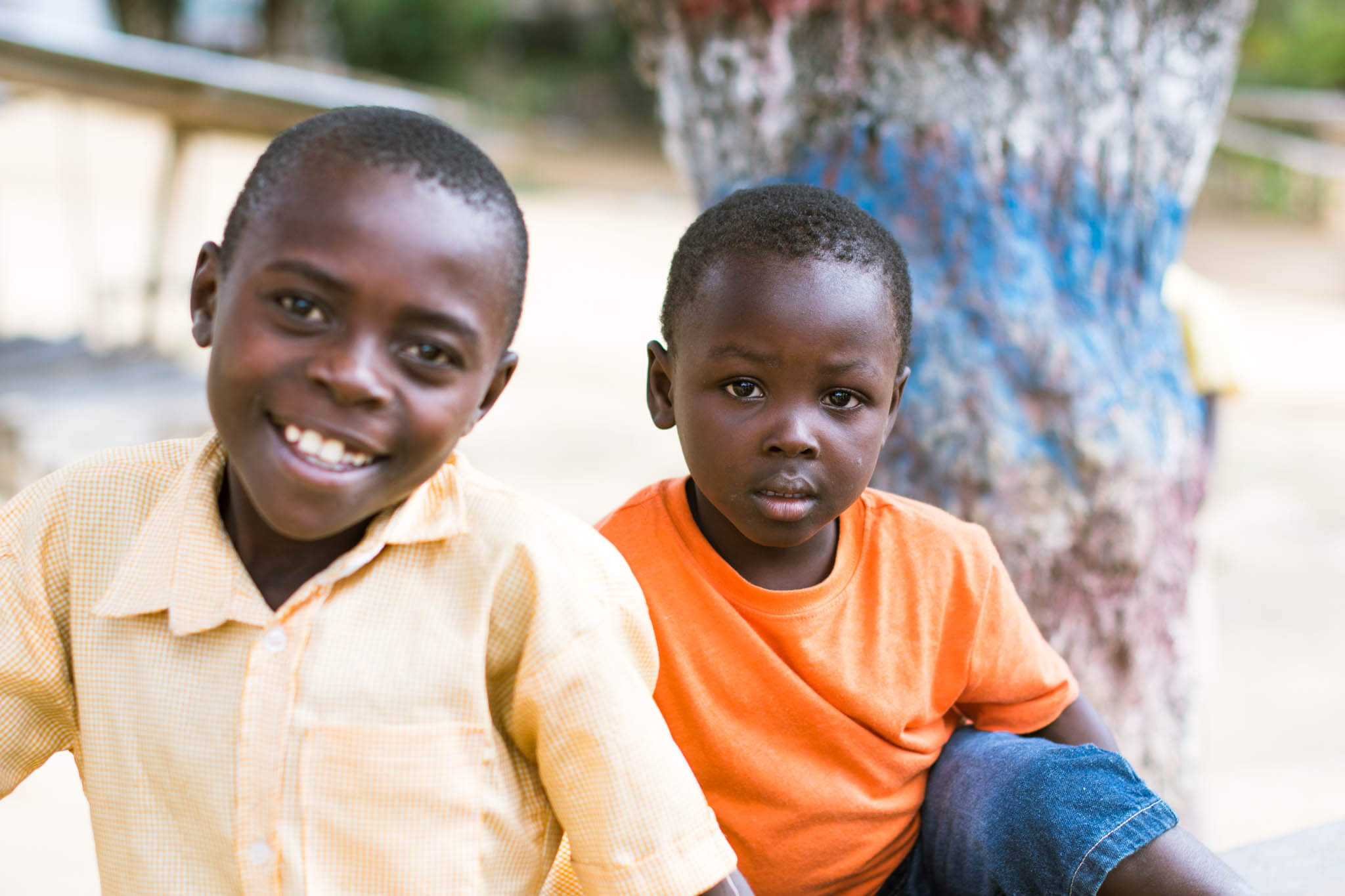
Recently, we sat down with Fr. Bavon, the pastor of the only Catholic parish in Bois de Laurence, Haiti. We asked him to share his experience as a native Congolese serving as a missionary in Haiti, particularly his work as president of the St. Jean Bosco school. When listening to Fr. Bavon, it’s difficult not to be moved by his love for the families he serves, and his humility in acknowledging that, “[The work we do is] actually not our mission; it’s God’s mission...God is doing his own things; we’re just God’s hands.”
What is the role of CICM missionaries in Haiti?
Our most important work is pastoral ministry and education in Haiti. The parish/school is the center of the life of the town; it is the center of blessing. The people sometimes feel forgotten by the government, so the missionaries--who come from different countries--sharing in their life, make them feel like they’re not forgotten by God, that at least the Church is there. It’s hard work. Sometimes, you feel exhausted. Sometimes you wonder, what am I doing here? But the joy you bring to the people makes you feel happy; that you bring joy to them just by being there and celebrating the Mass for them.
Why is St. Jean Bosco school such an important part of your work in Bois de Laurence?
St. Jean Bosco is the biggest school around, and because it’s run by the Church, parents trust us to give their kids a good quality education. They see this as an investment in the future of their families and of their nation, so much so that many families sacrifice a great deal to make sure their kids can attend St. Jean Bosco.
What kinds of sacrifices do the families of St. Jean Bosco school make to pursue their education?
Aside from scrimping and saving to pay for tuition, some families also sacrifice much of their time together so that their children can attend St. Jean Bosco. Since we are the only decent school in the area, some kids walk miles each day--one to two hours on foot--to get to school.
What are the facilities like at St. Jean Bosco?
Honestly, the classrooms are not very nice, but we still provide a good education through the teachers we select and the curriculum that we use. We’re building three more classrooms so that we can add on a high school, but we can only build as long as the money comes in. When we don’t have enough money to continue construction, we have to put the project on hold.
What is the cost for a year’s tuition at St. Jean Bosco? How are poor students able to attend?
We can educate one student for an entire year for $120, and that includes meals in the cafeteria each day. We have about 700 students currently enrolled at St. Jean Bosco, but we cannot make a budget based on that number because so few families can afford to pay the tuition. Currently, we only have 26 students who are being sponsored by godparents, benefactors from abroad, or other missionaries. In order to pay our teachers a fair wage, we can’t lower the tuition. We need more sponsors if we are going to keep our doors open.
In the end, Fr. Bavon insists that no matter what their needs are as a missionary community, God always provides. Yes, they need sponsorships so that more students can get a good quality education at St. Jean Bosco, but Fr. Bavon says at the end of the day, “we rely on God, because he has his own way of making things work.”
This year we’re hoping to send 100 Haitian kids to school. Will you help us by becoming a student sponsor in 2017?









